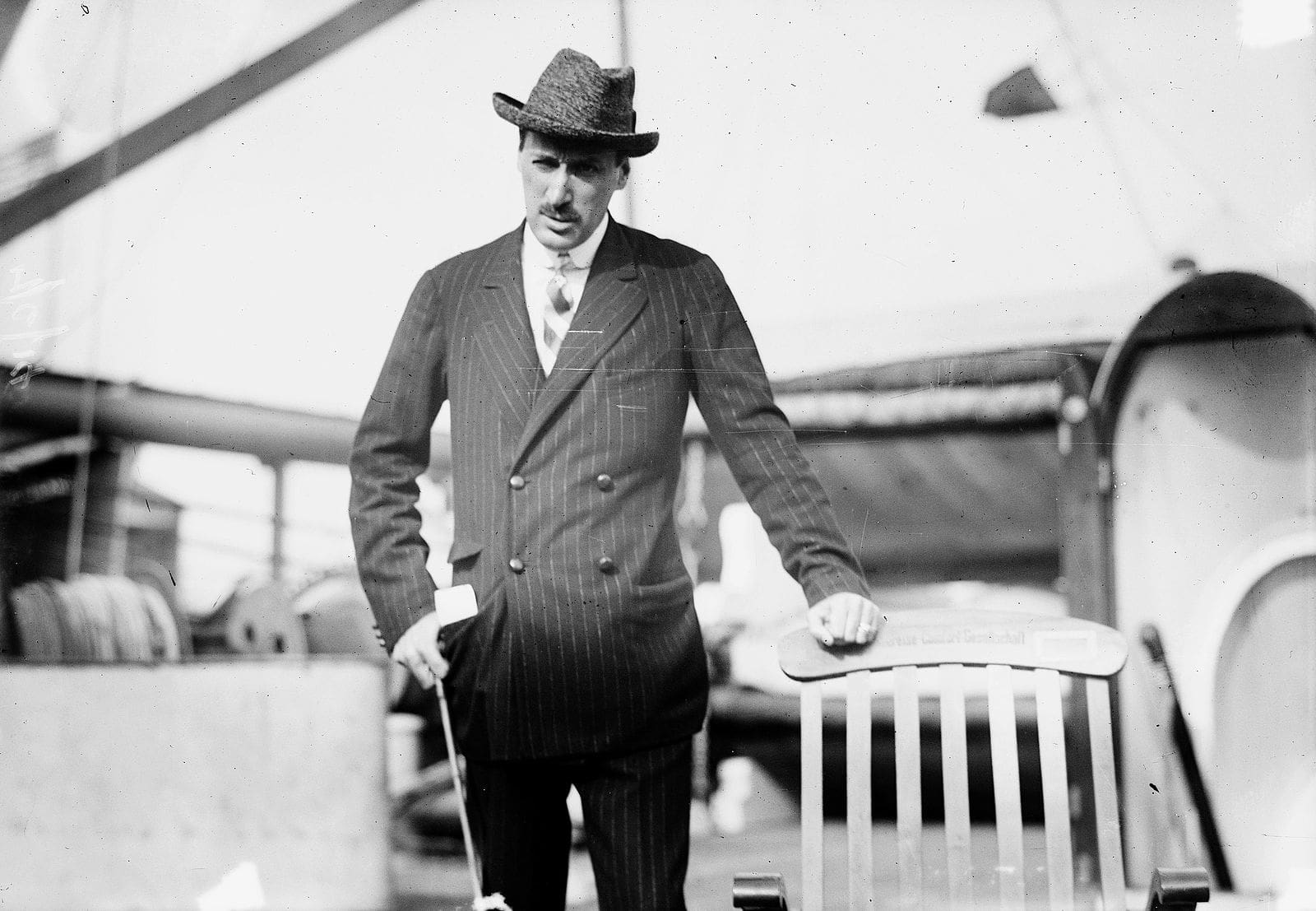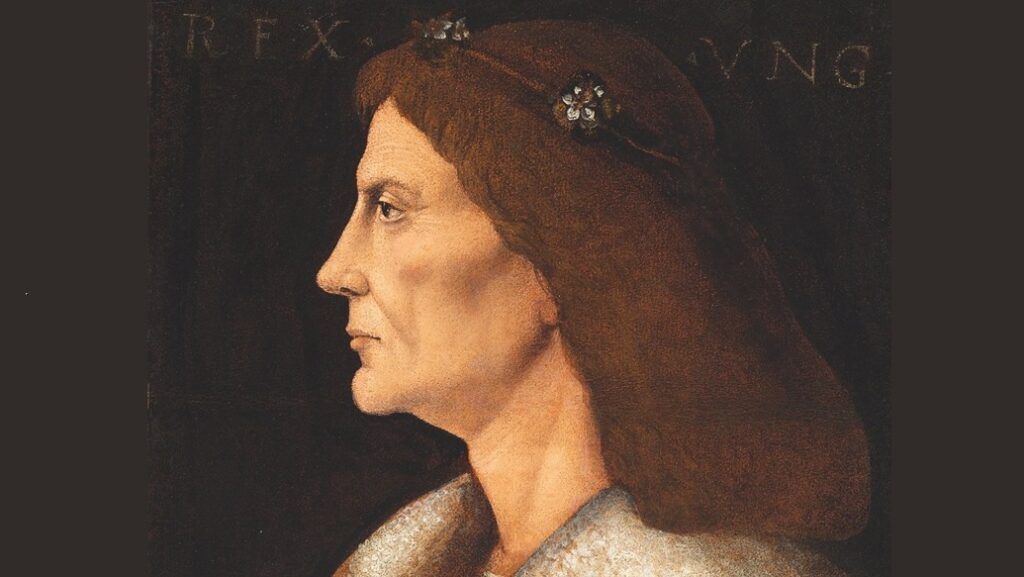After the fall of the 1918 Aster Revolution and the 1919 Soviet Republic in Hungary, the left-wing elite went into collective exile and turned into a bitter group of spiteful has-beens. Contemporary progressive sociologist Oszkár Jászi gave a realistic analysis of the situation when he wrote that there was a ‘Chinese wall’ that separated them from Western democracies. The hopelessness of their cause often resulted in depression, and Jászi frequently described himself as ‘hysterical’ and ‘desperate’. He was well aware of his own condition and was horrified to find that his son might have inherited it: ‘every obstacle or difficulty provoked [in him] an onset of melancholy’, he wrote in his diary. [i]
The former prime minister, Mihály Károlyi agreed with him. ‘He suffers from severe [nervous weakness]. He is so nervous that it is almost embarrassing to look at him,’[ii] Károlyi wrote to his wife, Katinka Andrássy. His wife also noted in her memoir that whenever something upset Jászi’s daily routine, he would have a depressive attack. After one such incident, he wandered for hours on the Croatian coast. In his emigration, Jászi attributed excessive importance to any article attacking Horthy or supporting the left-wing emigration. He would go from one false hope to the next, for instance, believing that Horthy would fall from power as early as December 1920 or a few months later at most. Then, in October 1921, Jászi’s Bécsi Magyar Újság (Hungarian Newspaper of Vienna) wrote that if the Horthy regime lasted until 1933, it would prove that ‘there is no God’.[iii] It was on the two-year anniversary of his emigration that Jászi asked himself the question for the first time, ‘My God, how long will it last?’[iv] Károlyi was initially similarly naïve: when he left Hungary, he expected to return home within a year, but his wife was even more optimistic: she planned to be back in Budapest in three months. Like Jászi, Károlyi became desperate after two years in exile, and he fantasized about overthrowing the counter-revolutionary regime through newspaper articles. He could not let go of a rich nobleman’s way of thinking: in his correspondence, he said that upon his return, he would beat his opponents with a wooden stick, especially the peasant leader István Szabó Nagyatádi (a form of punishment employed against serfs in the olden days).[v] It is rather ironic that the progressive count would have a burning desire to flog peasants.
As an émigré, Károlyi drifted increasingly to the far left.
His travelling library consisted mainly of works by Marx, Kautsky and Lenin, and in a 1920 letter he explained to his wife that Einstein’s calculations had mathematically disproved capitalism. Paradoxically, in other correspondence he expressed nostalgia for the comforts and luxury of his previous aristocratic life that he had in fact voluntarily renounced. Károlyi himself was never good with money, but this only seemed to bother his wife. The couple lived in relative poverty in exile, and yet Károlyi passed the time mainly by playing chess and drinking coffee, and he also spent money on fine clothes. He also often forgot to tie his shoelaces and his secretary had to run after him to tie them for him. This was no accident: since his childhood, Károlyi had been dressed by his valets. In his memoirs he himself admitted: ‘For so long I have lived outside the realities of life!’[vi]
Károlyi maintained an extensive correspondence with Róza Bédy-Schwimmer, the former ambassador to Switzerland of the Aster Revolution government. The émigré feminist politician tried to get Károlyi’s articles into several English newspapers, but Károlyi was apparently too lazy to actually write the articles. Bédy-Schwimmer had comical hopes regarding the ‘American Jewish Freemasonry’: she was convinced that they were secretly financing the Horthy regime and that they just had to be convinced to finance the left-wing emigrants instead. When the son of a Chicago rabbi wrote an article in favour of Károlyi, he was delighted—he probably felt that the mystical ‘Jewish world power’ was finally on their side.[vii]
In the meantime, it was ever more difficult for the Károlyis to make ends meet. Neither Károlyi nor his wife were very eager to work, and his wife did not deny that she had ‘no desire’ to do so. They wandered from one rented home to the other, from bad to worse. Mrs Karolyi commented they lived ‘like nomads’.[viii] The latter statement was, of course, a matter of opinion. In Split (then Yugoslavia, now Croatia), Mrs Károlyi found excellent khaki clothes costing ‘only’ 120 dinars per metre, she wrote to her husband, so Károlyi should not buy her new clothes in Belgrade, because there they were cheaper. But he should bring dark brown face powder, because Mrs Károlyi was tanned, and light powder would not match her dark complexion.[ix] Considering the prices at the time,
the cost of one metre of the tanned Mrs Károlyi’s ’excellent khaki fabric’ could have bought an average Hungarian 50 meals.
‘It is easy for those whose coffee is a double espresso’, noted bitterly in a letter to his wife Péter Ágoston, a progressive law professor sentenced to death in the trial of the People’s Commissars, who was not executed in the end but exchanged for Hungarian prisoners of war with the Soviet Union.[x]
It is telling how the Károlyi couple treated common people. Mrs Károlyi was offended when a worker called her ‘my lady’, even though her husband himself admitted that ‘because of my aristocratic upbringing, I was unfortunately never able to speak to workers or peasants in their own language, and so I was always far removed from the community to which I wanted to belong’.[xi] According to his memoirs, in Mexico he amused himself by scaring waiters with stories of how many people had been killed during his revolution, and his wife recalled how they had laughed together at Nagyatádi for wearing peasant clothes.
The same contradiction between a spendthrift lifestyle and apparent lack of income was true for Jászi as well. It is unclear how he made a living while in emigration, but his standard of living was definitely one that the average Hungarian worker could not have dreamed of affording. He spent much of his time treating his headaches and toothaches, hunting for Turkish coffee, shopping in Vienna, and visiting sanatoria and steam baths. In the evenings, he read Marx, Shakespeare and the Bible. On one occasion he approached foreign newspapers offering to write articles for them, but his demand for thousands of dollars in fees was laughed off. As his diary reveals, he was unable to sort out his underwear on his own, leaving it to his wife, but he also kept a cleaning lady. He was sometimes honest enough with himself to admit that he was leading a ‘useless’, ‘vegetative’ life.
However, the aversion to work was not unique to the leaders of the emigration. After a while, Mihály Révész, a social-democratic journalist in exile, had enough of living abroad and tried to get a job in Budapest. But when his left-wing friends found him a job as a manual worker, he turned it down, indignantly declaring ‘I won’t be a street sweeper’.[xii]
Károlyi worked late into the night with his lawyer György Nagy on his defence in his in absentia trial for treason.
Nagy, a writer and politician of Transylvanian origin sought to portray Károlyi as a very chauvinistic politician fighting for the Hungarian national interest, rather than a revolutionary. Károlyi himself did not agree with this approach. ‘It was the opposite of the defence I had intended for myself.’ ‘Either I was a traitor in the human and legal sense of the word, and then I helped the enemy and ruined my own country, or I was a conscientious patriot who acted in the interests of my country,‘ Károlyi opined.[xiii]
The possibility that there was a third category in addition to the two—that he was a well-meaning fool, the kind that in critical situations can cause even more harm than a malevolent person—apparently did not occur to Károlyi. However, this interpretation of Károlyi’s actions did arise in the 1921 trial, and the court did not even have to quote his opponents, since many of his former followers testified to this effect. According to Péter Ágoston, Károlyi was ‘always afraid and trembling’. According to Dezső Bokányi, he was only nominally in his position, and according to József Haubrich, he was a stammerer, a spiritually bleak, ‘unlovable’ character—in short, an unfit politician. In this sense, there was little difference between his former colleagues’ opinion of Károlyi and the accusations of the racist newspaper Szózat, which called Károlyi untalented, irresponsible and ignorant.[xiv]
The emphasis on Károlyi’s incompetence also reinforced the propaganda image of Miklós Horthy as a strong, capable leader. Although the two politicians had little in common, interestingly they both believed that the spirit of the emperor Franz Joseph has some kind of influence over their lives. Already as a regent, Horthy often prayed for Franz Joseph, entrusting himself to his ‘wisdom’.[xv] And when Károlyi broke a bone while riding his bicycle on the anniversary of the former Austro-Hungarian ruler’s birthday in 1924, he concluded that the spirit of Franz Joseph must have cursed him.[xvi]
[i] György Litván (ed.), Jászi Oszkár naplója 1919–1923, Budapest, MTA Történettudományi Intézete, 2001, 146, 190.
[ii] Politikatörténeti Intézet Levéltára (Archives of the Institute for Political History [hereon cited as PIL, formerly known as the Archives for Communist Party History]), 704.f.149.
[iii] Bécsi Magyar Újság, 22 Oct 1921.
[iv] Jászi Oszkár naplója, 189.
[v] PIL, 704.f.147.
[vi] Mihály, Károlyi, ’Hit, illúziók nélkül’, Budapest, Magvető, 1977, 217.
[vii] PIL, 704.f.332.
[viii] Mihályné Károlyi, Együtt a száműzetésben, Budapest, Európa, 1985, 10–12.
[ix] PIL, 704.f.168.
[x] PIL, 689.f.16.ő.e.
[xi] Károlyi, ’Hit, illúziók nélkül’, 216.
[xii] Budapest Főváros Levéltára (Budapest Municipal Archives, hereon cited as BFL), V1.d. 1. box, 2–1923.
[xiii] PIL, 704.f.13.
[xiv] BFL VII.2.c.1921.36537.2953 6–7.
[xv] Miklós Horthy, Emlékirataim, Budapest, Európa, 1990, 186.
[xvi] Károlyi, ’Hit, illúziók nélkül,’ 253.








